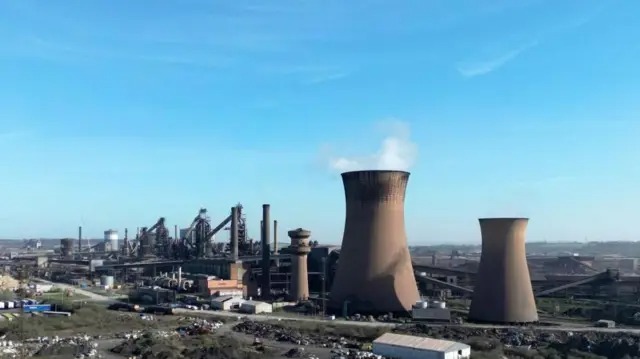
In a unique Saturday session, UK lawmakers returned from their Easter recess to approve urgent legislation to attempt to save the country's last blast furnace steel plant in Scunthorpe. Prime Minister Keir Starmer called Parliament into session to prevent the Chinese-owned Jingye Group from deactivating the furnaces at British Steel.
Emergency Bill Provides the Government with Temporary Powers
If the bill is passed - which is widely expected - Business Secretary Jonathan Reynolds will be given the power to:
- Give directions to the board of the company.
- Authorize salary payments.
- Place orders for consumables such as iron pellets needed to keep the furnaces running.
Starmer claimed that the plant's future "is very much up in the air", highlighting the need for action coming after Jingye's scrapping of key raw material orders, which was driving the site towards closure within days.
Not Ruling Out Nationalization
Starmer has chosen not to use the term "nationalization," however, he has claimed that “all options remain on the table” in efforts to save the plant and its workforce of nearly 2,700 people.
Labour unions have welcomed the measure with open arms. Community Union’s General Secretary, Roy Rickhuss, said:
“It is in the national interest that a solution is found… We can’t allow Britain to become the only G7 country without primary steelmaking capacity.”
Comments Relating To The Future Integral Role of Jingye Group Are Uncertain
The group claims the Scunthorpe site is uneconomical because of escalating costs associated with the environment along with adverse marketing conditions internationally. The group had tried to get government aid for months but has been unsuccessful.
Adding to the pressure is former US President Donald Trump imposing a further 25% tariff on steel imported into the U.S. This has eroded the already troubling prospects of the site financing.
Starmer, however, decided not to strike back diplomatically and instead opted to strike up negotiations to eliminate the tariffs, which are also on British goods.
History and Strategy Value of British Steel
It is strategically critical to the UK industry as the Scunthorpe facility is the sole remaining location in the UK with the capability to transform iron ore into virgin steel via blast furnaces.
In the postwar period, more than 300,000 employees were British steel workers.
Now, less than 40,000 people work directly in the sector, which contributes 0.1% to the UK economy.
Most steel makers in the UK have converted to using electric arc furnaces which use recycled materials which gives Scunthorpe a singular importance.
“The steel industry is part of our national narrative,” Starmer said. He highlighted the domestic steelmaking industry’s steelmaking industry’s industry value narrative while retaining the symbolic value.
Constituents’ Historic Recall of Parliament
Since Argentinian troops invaded the Falkland Islands in 1982 and UK troops invaded the islands, this is the first Saturday session of Parliament. This indicates the effort by the government regarding the potential collapse of primary steelmaking in the UK
Read More: Debt Free Penny Stock Mangalam Industrial Finance Hits Upper Circuit Priced Under One Rupee

 Share
Share



